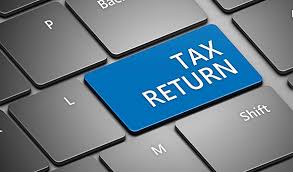-
By valero
- In Uncategorized
If you have read all our articles on how to open and run a business in the UK, you may have one question left unanswered. What are the tax filing deadlines in the UK?

Filing your tax return in the UK is a much simpler process than in Spain, but there are deadlines. We are going to explain briefly when and how you should file your taxes in the UK. No matter whether you have an LTD company or you are a sole trader.
UK Tax Year: A Quick Overview
Before talking about dates, you should know that the UK tax year runs from 6 April to 5 April the following year. That might be a little different to the rest of the world, but every country has its own customs. It is something you need to get used to if you want to succeed abroad.
Tax filing deadlines if you are a Limited Liability Company (LTD)
As an LTD, you are obliged to submit two types of documentation. On the one hand, the annual accounts (Company Accounts) with Companies House. On the other hand, the Company Tax Return to His Majesty’s Revenue and Customs.
Deadlines and key dates for filing UK tax returns
You have up to 9 months after the end of the tax year to file your annual accounts. For example, if your tax year ends on 31 December, you have until 30 September of the following year.
There is a reason for this! Many companies set 31 March or 31 December as the closing date for their accounts in order to better fit in with the tax year or calendar year.
You must fill up the tax return form within 12 months after the end of the financial year. However, Corporation Tax is payable up to 9 months and 1 day after the end of the financial year. This is something to bear in mind because you may have to pay before you have filed your tax return.
Tax filing deadlines if you are a if you are Sole Trader
There is a different system for sole traders. Here we are talking about what is known as Self Assessment. That is the declaration of personal income if you have earned more than £1,000, excluding any deductions.
Remember that the tax year ends on 5 April and the deadline for filing online is 31 January of the following year. The same day is also the deadline for paying tax.
You can choose to pay weekly or monthly, or in two instalments. In the latter case, the deadline for the second payment is 31 July.
Failure to meet deadlines
The consequence of failing to comply with your tax obligations on time is that you will be subject to a fine. This is not a large amount, as if you submit it late it is £100 (even if you are only one day late).

Bear in mind that fines are cumulative. For example, if you are late by one, two or five months, the fines will accumulate and interest will be charged for non-payment. If you keep good control of the dates or leave them to an agent, you will avoid more than one scare.
In an increasingly technological world, and more so in the UK, you will be able to do al the process entirely online.
How do you file your taxes?
Both Companies House and HMRC have very simple and intuitive platforms. You also have at your disposal very useful and international apps to be able to file them wherever you are.

Final Thoughts
Having a clear UK tax filing date is key to running your business smoothly. Whether you are a sole trader or have an LTD, the deadlines are clear, and it is enough to have a good control of the times.
Use all the tools you have at your disposal nowadays: apps, accountants, diaries, etc. Operate your business in the UK without any hassle or unwelcome fines.